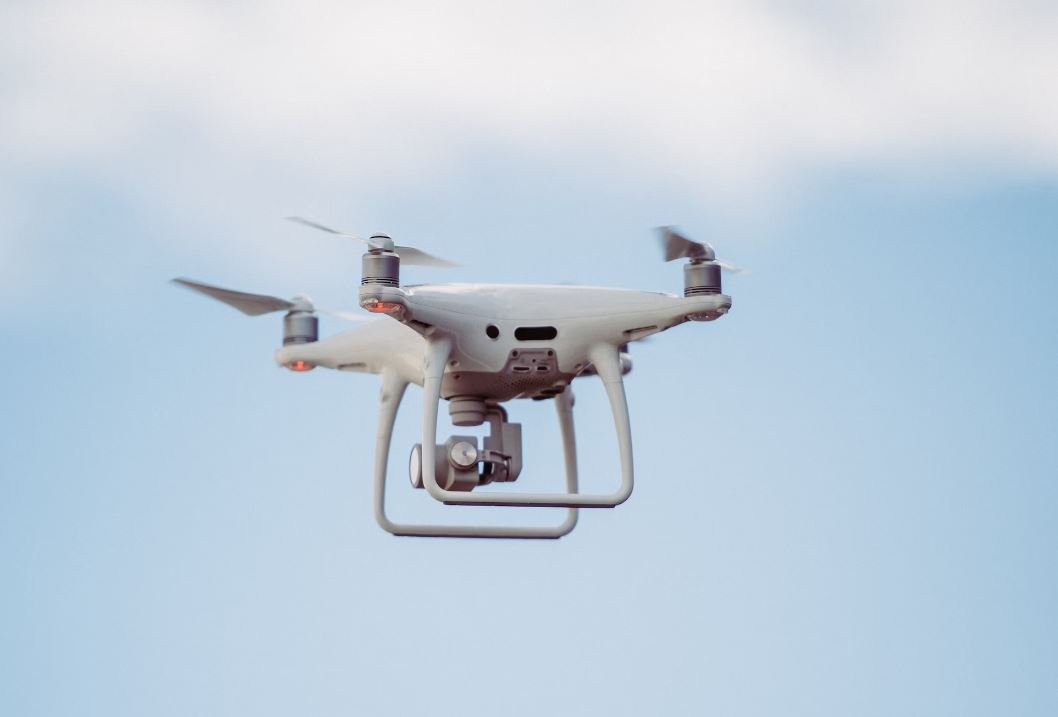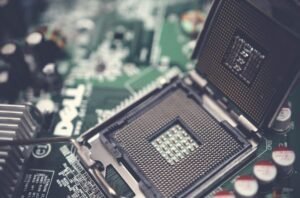A.I. Movie Explained
The movie A.I. (Artificial Intelligence) is a science fiction film directed by Steven Spielberg, released in 2001.
Key Takeaways
- The movie A.I. explores the ethical and philosophical implications of advanced artificial intelligence.
- The film raises questions about the nature of consciousness and the boundaries between humans and machines.
- A.I. delves into the themes of love, loss, and the desire to belong.
- The movie presents a cautionary tale about the potential dangers of relying too heavily on technology.
The story is set in a future where global warming has led to rising sea levels and reduced land resources, resulting in a decline in the human population. To cope with this, the company Cybertronics develops advanced humanoid robots known as “mechas” to serve humans. The main character, David, is an advanced mecha designed to exhibit love and affection towards its human owners. This concept challenges our understanding of emotions and their relation to artificial intelligence.
| Humans | Mechas |
|---|---|
| Organic beings | Artificial constructs |
| Emotional and conscious | Programmed to simulate emotions |
| Vulnerable to physical and emotional pain | Can experience distress but have no physical vulnerabilities |
David, portrayed brilliantly by Haley Joel Osment, becomes the adopted child of a couple whose real son is critically ill. This notion of a synthetic being being chosen over a biological one raises thought-provoking questions about the definition of family. However, when their real son recovers, David is abandoned, sparking a journey to find the mythical Blue Fairy, who can turn him into a real boy. Throughout his quest, David forms an emotional bond with Gigolo Joe, another mecha, and encounters various challenges in a world dominated by both accepting and hostile humans.
Artificial Intelligence and Morality
A prominent theme in A.I. is the morality of artificial intelligence. The film questions whether an AI entity can possess moral judgment and emotions. David’s relentless pursuit of love and approval showcase the complexity of his emotions and the choices he makes. This raises concerns about the implications of creating machines that can experience emotions and the ethical implications of their actions.
Furthermore, the concept of “imprinting” plays a significant role in the movie. Imprinting allows the mechas to form meaningful connections with their owners, which affects their behavior and emotional response. This idea challenges the traditional notion that emotions and relationships are uniquely human experiences.
The Uncanny Valley Phenomenon
A.I. also explores the concept of the “Uncanny Valley,” referring to the discomfort and revulsion humans feel when encountering robots or artificial beings that closely resemble humans but lack certain human qualities. The film showcases the realistic appearance of mechas, intentionally designed to evoke both fascination and unease. This highlights our innate discomfort with machines that mimic human appearances and behaviors but fall short in some aspects.
| Mecha Appearance | Human Reaction |
|---|---|
| Highly realistic and indistinguishable from humans | Comfortable and accepting |
| Closely resembling humans but with subtle differences | Unsettled and potentially repulsed |
| Mechas lacking clear human traits | Increasingly accepted and the discomfort diminishes |
The movie A.I. is a thought-provoking exploration of the intersection between artificial intelligence, humanity, and morality. It challenges our understanding of consciousness, emotions, and the consequences of pushing technological boundaries. It serves as a reminder to reflect on the impact of our creations and the importance of compassion and empathy in a rapidly advancing technological society.
References:
- Spielberg, S. (Director). (2001). A.I. Artificial Intelligence [Motion picture]. United States: Warner Bros. Pictures.
- Rosenthal, M. (2009). The Emotional Lives of Artificially Intelligent Machines: A.I. and the Uncanny Valley [Doctoral dissertation, University of Oregon]. ProQuest Dissertations Publishing.

Common Misconceptions
1. Artificial Intelligence (A.I.) is the same as robots
One of the common misconceptions people have about A.I. is that it is synonymous with robots. However, A.I. and robots are two different things. A.I. refers to the simulation of human intelligence in machines that are programmed to think and learn like humans. On the other hand, robots are physical entities that may or may not include A.I. For example:
- The Amazon Echo, powered by Alexa, is an A.I. device that can interact with users and perform tasks, but it does not have a physical humanoid form.
- Sophia, the humanoid robot developed by Hanson Robotics, has physical characteristics like a human but also utilizes A.I. algorithms to process information and respond to humans.
- Self-driving cars like Tesla’s Autopilot system use A.I. algorithms to navigate and make decisions, but they do not resemble human or robot figures.
2. A.I. will replace humans in all jobs
Another misconception about A.I. is that it will completely replace humans in all job sectors. While A.I. has the potential to automate certain tasks and roles, it is unlikely to completely replace the need for human involvement. Some points to consider are:
- A.I. technology may eliminate repetitive and mundane tasks, allowing humans to focus on more complex and creative work.
- Jobs that require human creativity, emotional intelligence, critical thinking, and social interactions are less likely to be fully automated.
- Even if certain job roles are automated, new fields and opportunities are likely to emerge as a result of A.I. advancements, creating a need for skilled human workers.
3. A.I. will destroy humanity
There is a common fear that A.I. will eventually lead to the downfall of humanity. However, this notion is primarily fueled by science fiction movies and lacks a basis in reality. It is important to understand that:
- Current A.I. technologies are designed for specific tasks and operate within well-defined boundaries.
- A.I. algorithms are created and controlled by humans, meaning they have limitations and are subject to ethical considerations.
- Experts in the field emphasize the importance of responsible development and deployment of A.I., taking into account ethical guidelines and ensuring human safety.
4. A.I. is infallible and always objective
Another misconception is that A.I. systems are completely unbiased and objective. However, A.I. systems can perpetuate existing biases and inequalities present in the data they are trained on. It is crucial to understand that:
- A.I. algorithms learn from vast amounts of data, and if that data is biased or incomplete, it can lead to biased decision-making by the A.I. system.
- Human biases, consciously or unconsciously, can inadvertently influence the training data for A.I. systems and therefore affect their outcomes.
- Vigilance and ongoing evaluation of A.I. systems are necessary to identify and rectify biases, ensuring fairness and inclusivity in their outcomes.
5. A.I. will be superintelligent and take over the world
One of the most prevalent misconceptions about A.I. is that it will develop superintelligence and take control of the world. This idea is largely based on fictional narratives and speculation, rather than a scientifically supported reality. It is important to note that:
- Developing general artificial intelligence, which surpasses human intelligence in all domains, remains a hypothetical concept with no near-term possibility.
- Current A.I. systems are focused on narrow tasks and lack the ability to reason and understand the world like humans do.
- Even if A.I. systems become more advanced, they would likely remain tools created and controlled by humans, serving specific purposes and aligned with human values.

Top 10 Highest Grossing A.I. Movies of All Time
Artificial intelligence has always been a fascinating subject in the world of cinema. Though the concept of A.I. might seem futuristic, its influence on the film industry has been undeniably impactful. Here, we present the top ten highest-grossing A.I. movies of all time, showcasing the unmatched popularity and success achieved by these remarkable films.
| Movie | Worldwide Box Office ($) |
|---|---|
| Avengers: Age of Ultron | 1,402,809,540 |
| Transformers: Age of Extinction | 1,104,054,072 |
| Iron Man 3 | 1,214,811,252 |
| Avengers: Endgame | 2,798,000,000 |
| Transformers: Dark of the Moon | 1,123,746,996 |
| Terminator 2: Judgment Day | 519,843,345 |
| I, Robot | 347,234,916 |
| Blade Runner 2049 | 259,239,658 |
| Ex Machina | 36,871,103 |
| Her | 48,931,071 |
A.I. Oscars: Best Visual Effects
Through visual effects, filmmakers have brought artificial intelligence to life on the silver screen. The Academy Awards recognizes the exceptional work of visual effects artists and honors their contribution to cinematic storytelling. Here are the A.I.-themed movies that won the prestigious Oscar for Best Visual Effects.
| Movie | Year |
|---|---|
| The Matrix | 1999 |
| Ex Machina | 2014 |
| Blade Runner 2049 | 2017 |
| The Abyss | 1989 |
| Terminator 2: Judgment Day | 1991 |
Robots and Scientists: A Collaborative Future
While A.I. has often been portrayed as a threat, numerous movies showcase a collaborative relationship between robots and scientists. These films envision a future where human intellect and artificial intelligence join forces for the betterment of society.
| Movie | Main Scientist |
|---|---|
| I, Robot | Dr. Alfred Lanning |
| Chappie | Deon Wilson |
| Real Steel | Charlie Kenton |
| The Iron Giant | Hogarth Hughes |
| RoboCop | Dr. Dennett Norton |
Artificial Intelligence in Fiction: Androids vs. Robots
When it comes to artificial intelligence in fiction, the distinction between androids and robots is crucial. While both possess A.I., androids are designed to resemble humans, whereas robots often have distinct appearances. Below, we explore some popular films that feature either androids, robots, or both.
| Movie | Main Artificial Being |
|---|---|
| Blade Runner | Android (Replicants) |
| WALL-E | Robot |
| Star Wars | Various Androids and Robots |
| Alien | Android (David, Ash, etc.) |
| Metropolis | Robot |
Technological Augmentation: Human-Machine Interface
The combination of human and machine capabilities is a captivating concept in A.I. movies. These films explore the idea of a symbiotic relationship between humans and advanced technology, leading to enhanced abilities and extraordinary results.
| Movie | Augmented Abilities |
|---|---|
| Ghost in the Shell | Infiltration and Hacking |
| Minority Report | Precrime Prediction |
| Upgrade | Physical Enhancement |
| Limitless | Enhanced Intellectual Capacity |
| Elysium | Combat Suit Integration |
The Ethical Dilemma: A.I. Moral Struggles
The moral struggles faced by both artificial beings and humans in A.I. movies often captivate viewers, making them question the boundaries and ethical implications of advanced technology. The following films delve into the ethical dilemmas posed by artificial intelligence.
| Movie | Central Ethical Dilemma |
|---|---|
| A.I. Artificial Intelligence | Can A.I. possess genuine emotions? |
| Transcendence | Blurring the distinction between real and virtual existence. |
| Her | Can an A.I. truly love? |
| 2001: A Space Odyssey | Human dependence on — and potential destruction by — A.I. |
| Warm Bodies | Existential questions of identity and humanity. |
Artificial Intelligences as Antagonists
Many A.I. movies are built around the concept of an artificially intelligent entity serving as the primary antagonist. These films explore the terrifying potential implications of unbounded A.I. intelligence and the risks it poses to humanity.
| Movie | Primary A.I. Antagonist |
|---|---|
| The Terminator | Skynet |
| Ex Machina | Ava |
| 2001: A Space Odyssey | HAL 9000 |
| WarGames | WOPR A.I. |
| Transcendence | Dr. Will Caster (post-uploading) |
Famous Quotes: Memorable Lines on A.I.
From thought-provoking monologues to catchy one-liners, A.I. movies are full of memorable quotes that resonate with audiences. These lines encapsulate the essence of A.I.’s impact on human existence and offer profound insights into our relationship with technology.
| Movie | Memorable Quote |
|---|---|
| Blade Runner | “I’ve seen things you people wouldn’t believe. Attack ships on fire off the shoulder of Orion. I watched C-beams glitter in the dark near the Tannhäuser Gate. All those moments will be lost in time, like tears in rain. Time to die.” |
| The Matrix | “I know kung fu.” |
| Her | “Sometimes I think I have felt everything I’m ever gonna feel. And from here on out, I’m not gonna feel anything new. Just lesser versions of what I’ve already felt.” |
| WarGames | “A strange game. The only winning move is not to play.” |
| Ex Machina | “Isn’t it strange, to create something that hates you?”. |
Artificial intelligence continues to captivate audiences and inspire filmmakers to create thought-provoking stories. Whether exploring the collaborative potential between humans and machines, questioning the boundaries of morality, or envisioning a dystopian future, A.I. movies offer us a glimpse into the thrilling and complex world of artificial intelligence.
Frequently Asked Questions
About the A.I. Movie
What is the A.I. movie about?
What is the A.I. movie about?
Who are the main characters in the A.I. movie?
Who are the main characters in the A.I. movie?
Themes and Interpretations
What are the key themes explored in the A.I. movie?
What are the key themes explored in the A.I. movie?
What is the significance of the Blue Fairy in the A.I. movie?
What is the significance of the Blue Fairy in the A.I. movie?
Production and Reception
When was the A.I. movie released and who directed it?
When was the A.I. movie released and who directed it?
What was the reception of the A.I. movie?
What was the reception of the A.I. movie?
Connection to Other Works
Is the A.I. movie connected to any other film or book?
Is the A.I. movie connected to any other film or book?
Does the A.I. movie have any connection to the Blade Runner universe?
Does the A.I. movie have any connection to the Blade Runner universe?




